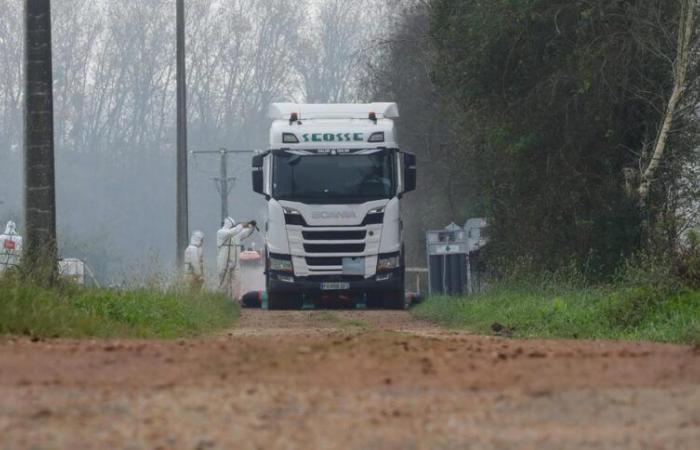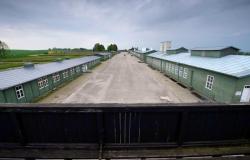From the side of the road, we see a truck around which around ten agents are busy, covered from head to toe in white protective suits. They were dispatched on the morning of Thursday November 14, 2024 to a duck farm in Saint-Étienne-d’Orthe after the detection of several cases of avian flu. Their mission: to euthanize the 6,000 web-footed birds on the farm.
This is the second outbreak identified in the town in a week. The second time that an operation of this type has been carried out in a few days. “These animals had been vaccinated against highly pathogenic avian influenza (HPAI), in accordance with regulations,” indicates the Landes prefecture in a press release.
Discretion and confidentiality require, none of the agents on site agree to speak about the protocols in progress behind the large white tarpaulins which have been drawn up at the gates of the farm.
“The slaughter is dependent on the national market and is carried out by a mandated private company. The ducks are euthanized on site, the carcasses are handled in a biosecure environment before being transported in waterproof skips directly to the rendering plant, explains the Landes prefecture. The administration supervises the process and draws up the slaughter report to calculate the breeder’s compensation,” continues the institution. ANSES (National Agency for Food, Environmental and Occupational Health Safety) is carrying out analyzes to study the virus.
In the city, the news spread quickly. A resident learned of the existence of a second source of infection during the day of Wednesday, November 13, via a messaging loop shared with other Stéphanois. One of our sources mentions a major outbreak of infection with “many advanced symptoms”.
An ongoing investigation
The mayor of Saint-Étienne-d’Orthe, Alain Diot, deplores the situation in which the breeders of his commune are entangled. “It’s been going on for a few years,” he sighs, “we can only hope that things get better for them as quickly as possible. » The first Landes farm in which an outbreak of infection was detected, on November 6, is located more than 2 kilometers north of it.
The Departmental Directorate of Employment, Labor, Solidarity and Population Protection (DDETSPP) declared that it was carrying out an investigation to determine whether epidemiological links exist between the two outbreaks.
In a press release dated Thursday, November 14, the Landes prefecture called on breeders to ensure strict compliance with “all biosecurity and surveillance measures” incumbent on them. While the authorities note “a strong and persistent dynamic in the circulation of the virus in wildlife in Europe”, they are asking those in the sector to be extra vigilant to avoid the introduction of the virus into new farms.






